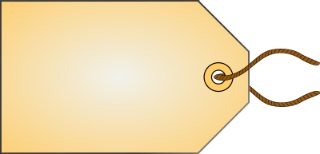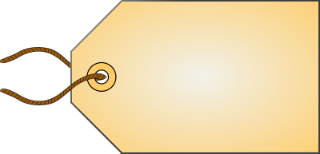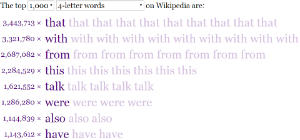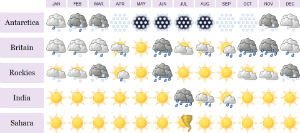Forbidden Words
Notes
Words that we have spoken for hundreds or thousands of years are being stolen from us
Here is a selection of words in the English language that have been trademarked by technology corporations. These words used to belong to us all; now they belong to Google, Microsoft, Apple or one of a dozen others.
I know what you're thinking. These words aren't really forbidden. They haven't really been stolen from us. We can still used them whenever we want to refer to pieces of fruit or glass openings in walls. Right?
Wrong. Try publishing a web site called PlaceBook and see how long it takes Facebook to send in the heavies. Or try developing cross-platform software called wxWindows and wait for the Microsoft word-police to come knocking at your door.
You might think it's inadvisable to choose a name for any project that contains the word book or window, but the fact is that there are only so many words in the English language, and when words like cell, edge, sun and wall become off-limits, it's difficult to come up with any name for a project that won't provoke one technology corporation or another. Now I come to think of it, things made thinkable contains the words thing (an Amazon trademark) and think (an IBM trademark).
Facebook did not invent the words face or book; indeed, it took the idea of a facebook from the schools that have been putting them out for decades. Microsoft did not invent the word window; it did not even invent the idea of a window as part of a graphical user interface, rather, it copied the idea from Xerox and Apple. We are content for corporations to adopt words and ideas from the public domain; this is how innovation happens and commerce thrives. Without embarrassment, they then turn around and forbid us from using the words and ideas they have stolen from us.
These big corporations shut down smaller companies or non-profit projects through bullyboy tactics. Facebook, for instance, cannot legally register face and book as trademarks, so instead it forces its users to agree not to use these words through its user agreement. Microsoft's insistence that it owns the word windows wouldn't stand up in court under most circumstances, but no individual or small organisation can afford to say no to a polite request from Microsoft, with its legions of lawyers and virtually unlimited financial resources.
The reality is that these words no longer belong to us. Until we remember that corporations exist for people's sake, not the other way around, these words and countless others will remain, for many purposes, forbidden.
Subscribe now and I’ll let you know whenever I create a new visualization
It’ll only be every couple of months or so, I won’t let anyone else have your email address, and you can unsubscribe at any time
Thanks for subscribing!
Check your inbox for an email to confirm your subscription
Oh no, something went wrong, and I was unable to subscribe you!
Please refresh your browser and try again
Books
Moral Panics and the Copyright Wars by William Patry – a convincing challenge to the very idea of intellectual property, arguing that the entertainment industry is merely hastening its own extinction with its emphasis on prosecuting consumers for petty copyright infringement rather than providing us with the creative music and movies we crave
If a book is listed on things made thinkable, it means I have read it from cover to cover and can recommend it as a thought-provoking follow-up to this visualization
Sources
Adobe · Amazon · Apple · Canon · Cisco · Dell · Google · IBM · Microsoft · Oracle · RIM · Sony · Xerox
EMI – Bloomberg – Entrepreneur, the Magazine That Sues Entrepreneurs
Text
A text summary of this presentation is shown below for easy reference
Acrobat · Adobe · Birch · Buzzword · Captivate · Contribute · Coriander · Cottonwood · Director · Distiller · Encore · Fireworks · Flash · Flex · Flood · Illustrator · Ouch · Ovation · Penumbra · Poplar · Quake · Reader · Revel · Shockwave · Sonata · Toolbox · Utopia · Wave · Willow
Amazon · Bop · Brilliance · Fire · Kindle · Prime · Readers · RSVP · Thing
Aperture · Apple · Aqua · Carbon · Charcoal · Chicago · Cocoa · Expose · Finder · Geneva · Genius · Keychain · Keynote · Logic · Monaco · Newton · Pages · Quartz · Retina · Rosetta · Safari · Sand · Shake · Sherlock · Spaces · Spotlight · Textile · Tubes
Flash · Stars
Continuum · Edge · Explorer · Fathom · Jabber · Quad · Valet
Latitude
Entrepreneur
Book · Face · Like · Poke · Wall
Android · Boomerang · Chrome · Chromium · Closure · Go
Alloy · Current · Diligent · Domino · Icing · Initiate · Iterations · Jazz · Lotus · Poet · Power · Prospect · Proviso · Purify · Quantify · Rational · Rhapsody · Solid · Think
Access · Arc · Conker · Excel · Fable · Freelancer · Georgia · Groove · Halo · Haunt · Lips · Natural · Outlook · Pinpoint · Rare · Windows
Java · Oracle · Solstice · Sun
Blackberry
Air · Alpha · Artisan · Cell · Conductor · Connect · Contact · Core · Design · Duality · Opus · Personal · Plato · Premiere · Prestige · Rite · Select · Sprinter · Stamina · Symphony · Trilogy
Rooms
Date
First published 19 August 2012














Comments
Click here to leave a comment
Thanks for your comment!
I’ll check it and put it live as soon as I can
Oh no, something went wrong, and I was unable to post your comment!
Please refresh your browser and try again
Greg Adamson ⋅ 17 January 2014
Its completely crazy. Trademarking individual common words undermines the credibility of the entire system. A system based on greed cannot survive for long.
nolotrippen ⋅ 5 October 2015
"forbidden" is not the right "word" here as I can use any and all of these words for virtually any task. The only thing I can't use them for (arguably) are for business.
Mark Jeffery ⋅ 30 October 2015
I don't know, nolotrippen. I don't think life can be separated into business and non-business any more. Take things made thinkable. It's not a business. It's just something I like to do, when I can get a few minutes away from my regular jobs. If Amazon comes calling, telling me I can't use the word thing, or IBM, telling me I can't use the word think, I don't have any income from this site to hire lawyers to defend myself against them. It's not just businesses that create content and put it out there: increasingly, it's individuals, too. I think it matters when corporations tell us what words we can and can't use.